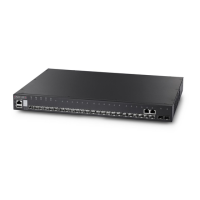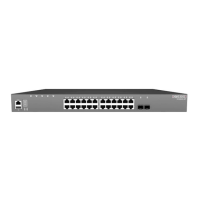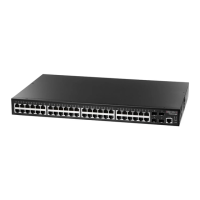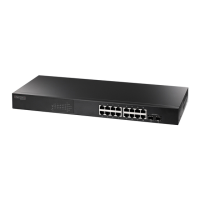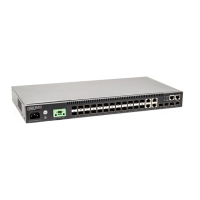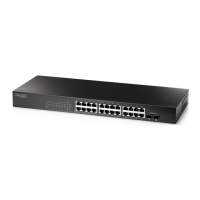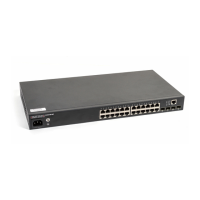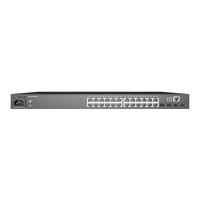Chapter 11
| Interface Commands
Transceiver Threshold Configuration
– 444 –
◆ Refer to the Command Usage section under the transceiver-threshold current
command for more information on configuring transceiver thresholds.
◆ Trap messages enabled by the transceiver-monitor command are sent to any
management station configured by the snmp-server host command.
Example
The following example sets alarm thresholds for the signal power received at port
1.
Console(config)interface ethernet 1/1
Console(config-if)#transceiver-threshold rx-power low-alarm -21
Console(config-if)#transceiver-threshold rx-power high-alarm -3
Console#
transceiver-threshold
temperature
This command sets thresholds for the transceiver temperature which can be used
to trigger an alarm or warning message. Use the no form to restore the default
settings.
Syntax
transceiver-threshold temperature {high-alarm | high-warning | low-alarm
| low-warning} threshold-value
no transceiver-threshold temperature
high-alarm – Sets the high temperature threshold for an alarm message.
high-warning – Sets the high temperature threshold for a warning
message.
low-alarm – Sets the low temperature threshold for an alarm message.
low-warning – Sets the low temperature threshold for a warning message.
threshold-value – The threshold of the transceiver temperature.
(Range: -12800 - 12800 in units of 0.01 Celsius)
Default Setting
High Alarm: 75.00
C
HIgh Warning: 70.00
C
Low Warning: 0.00
C
Low Alarm: -5.00
C
Command Mode
Interface Configuration (SFP/SFP+ Ports)
Command Usage
◆ Refer to the Command Usage section under the transceiver-threshold current
command for more information on configuring transceiver thresholds.
